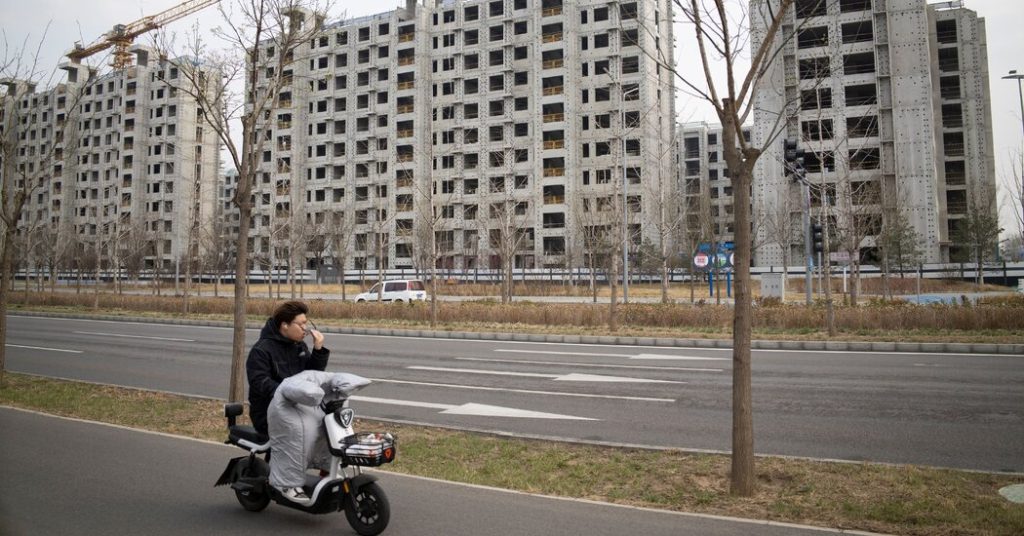Chinese officials are becoming increasingly concerned about the country’s deteriorating real estate market, with new data showing a lack of interest from buyers. In response, the government announced plans to intervene by purchasing some of the surplus housing stock and relaxing mortgage rules to stimulate demand. Vice Premier He Lifeng suggested that local governments could buy empty apartments to provide affordable housing, similar to how the United States implemented the Troubled Asset Relief Program during the 2008 financial crisis. This shift in strategy reflects the recognition that existing stimulus measures have not been effective, prompting the government to step in as a buyer of last resort.
To further incentivize home purchases, China’s central bank reduced mortgage interest rates and lowered down payment requirements in an effort to stimulate sales. The government’s efforts come at a time when the housing market is facing significant challenges, with a record number of unsold homes and steep price declines. Data from China’s National Bureau of Statistics shows that the inventory of unsold homes is at an all-time high, while new and existing home prices have dropped sharply both monthly and annually. This downward trend highlights the severity of the housing crisis and underscores the need for government intervention to restore confidence in the market.
The root of China’s housing crisis can be traced back to years of excessive borrowing by developers and overbuilding, which fueled the country’s economic growth but also led to unsustainable practices. When the government finally cracked down on risky behaviors in 2020, many developers faced financial difficulties and some, like China Evergrande, defaulted on their debts. Evergrande’s collapse in late 2021 sent shockwaves through the industry, leaving behind unfinished projects and massive liabilities. The subsequent series of high-profile defaults, including the current legal battles involving companies like Country Garden, have further destabilized the real estate sector and raised concerns about the industry’s future.
The government’s intervention in the real estate market reflects a broader shift in policy as Chinese officials grapple with the challenges of addressing declining housing demand and rising inventory levels. By implementing measures to stimulate sales and provide affordable housing, the government aims to stabilize the market and prevent further disruptions. However, the long-term impact of these interventions remains uncertain, as the underlying issues of excessive debt and overbuilding persist. As China navigates its housing crisis, policymakers will need to carefully balance short-term objectives with the need for sustainable reforms to ensure the stability of the real estate sector in the future.







